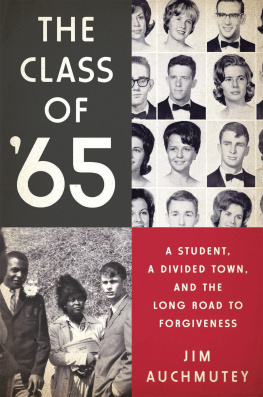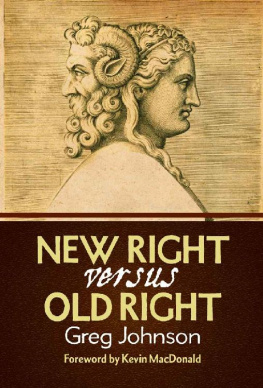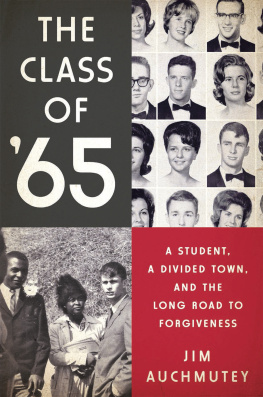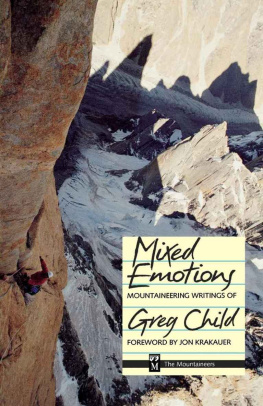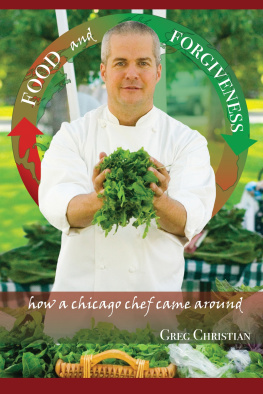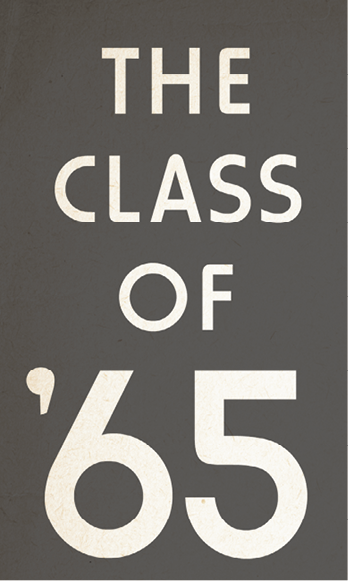
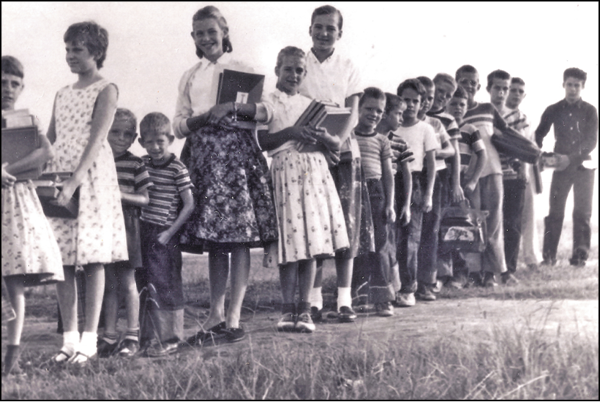
Seventeen Koinonia children waiting for
the school bus, mid-1950s. Courtesy of Conrad Browne

A Student,
a Divided Town,
and the Long Road
to Forgiveness
Jim Auchmutey

Copyright 2015 by Jim Auchmutey.
Published in the United States by PublicAffairs, a Member of the Perseus Books Group
All rights reserved.
Printed in the United States of America.
No part of this book may be reproduced in any manner whatsoever without written permission except in the case of brief quotations embodied in critical articles and reviews. For information, address PublicAffairs, 250 West 57th Street, 15th Floor, New York, NY 10107.
PublicAffairs books are available at special discounts for bulk purchases in the U.S. by corporations, institutions, and other organizations. For more information, please contact the Special Markets Department at the Perseus Books Group, 2300 Chestnut Street, Suite 200, Philadelphia, PA 19103, call (800) 810-4145, ext. 5000, or e-mail .
Book Design by Pauline Brown
Library of Congress Cataloging-in-Publication Data
Auchmutey, Jim.
The class of 65 : a student, a divided town, and the long road to forgiveness / Jim Auchmutey. First edition.
pages cm
Includes bibliographical references and index.
ISBN 978-1-61039-354-6 (hardcover)ISBN 978-1-61039-355-3 (e-book) 1. Wittkamper, Greg, 1947Childhood and youth. 2. Americus (Ga.)Race relationsHistory20th century. 3. School integrationGeorgiaAmericusHistory20th century. 4. High school studentsGeorgiaAmericusBiography. 5. Youth, WhiteGeorgiaAmericusBiography. 6. Koinonia FarmBiography. 7. OutcastsGeorgiaAmericusBiography. 8. PersecutionGeorgiaAmericusHistory20th century. 9. Class reunionsGeorgiaAmericus. 10. ForgivenessGeorgiaAmericus. I. Title. II. Title: Class of sixty-five.
F294.A5A83 2015
975.8'913043092dc23
[B]
2014041648
First Edition
10 9 8 7 6 5 4 3 2 1
For all the people who stand up for what they know is right.
It is curiouscurious that physical courage should be so common in the world and moral courage so rare.
Mark Twain
Contents
On a cool morning in early May, Greg Wittkamper got in his Subaru Outback and started up the gravel road leading from his house in the mountains of southern West Virginia. He was going to check his post office box in the nearest town, Sinks Grove, as he did almost every day. Mixed in with the usual bills and business correspondence was a letter he had never expected to see: an invitation to his high school reunion.
High school had been the worst time of Gregs life, his nightmare years. He wasnt bullied so much as he was persecuted for his beliefs and those of his parents and of the singular religious community where they lived. Greg went to school in Americus, nine miles from Jimmy Carters hometown of Plains, in the cotton and peanut country of southwest Georgia. At the beginning of his senior year, he made a point of riding to class with three black students who were desegregating Americus High School, an institution that had been reserved for whites since its founding in the previous century. A mob assaulted them with rocks and curses in a scene reminiscent of the disorders that greeted the first black students at Central High School in Little Rock, Arkansas, and at so many other campuses across the South.
What made this scene different was Gregs presence. He was white. He didnt have to risk his neck by accompanying the black students to school. He did it because he was raised that way. Greg had grown up in a Christian farming commune outside Americus called Koinonia (pronounced COY-no-NEE-ah, after the Greek word for fellowship). Koinonia is known today as the birthplace of one of Americas best-loved nonprofit organizations, Habitat for Humanity, but the farm was anything but loved during Gregs childhood. Back then, it was notorious, resented, despised. Its residents believed in nonviolence, communal sharing, and interracial living, all of which set them against the reigning white culture of that time and place. For several years, the community was attacked and boycotted in a harbinger of the violence that awaited civil rights activists in the Deep South. Koinonia was a dangerous place to be from, especially if you also happened to be a student at a school being forced to desegregatea student who actually supported that desegregation.
The last time Greg had seen any of his classmates was graduation day, in the early summer of 1965, when his name was booed and hooted during the diploma ceremony. Now they were inviting him back to their fortieth reunion. He hadnt lived in Georgia in decades. He wondered how they even knew where to find him.
Greg leafed through the rest of his mail and noticed a familiar name on a return address: David Morgan. He tore open the letter.
I expect you will be quite surprised to hear from me, it began. If you remember me at all, it will likely be for unpleasant reasons.
Greg remembered him all right. While David hadnt hurled insults or thrown a fist, he was part of the crowd of students that jeered as others harassed him during his three years at Americus High. They spat on him, ripped his books, tripped him on the stairs, pissed in his locker. A couple of guys even hit him in the face. Greg had heard about scapegoats in the Old Testament; he didnt know he was going to become one.
Throughout the last 40-plus years, the letter continued, I have occasionally thought of you and those dark days you endured at our hands. As I matured, I became more and more ashamed, and wished that I had taken a different stand back then.
Greg stared at the paper and felt his throat tighten. He was nearing sixty now, his waist thicker, his beard showing patches of gray, and he was content with his life in West Virginia, where his real estate business was going well and he had recently remarried and had a young daughter to dote on. But some hurts never go away. In everyones memory, theres something hidden, something dark, something no one wants to think about when the lights go out and sleep wont come. For Greg, it was Americus High School. The most painful chapter of his back pages was pulling him into the past, whether he wanted to go or not.
____________________
In the fall of 1964, Greg was seventeen, a powerfully built young man who stood five foot nine and had strong, stubby hands that bore testament to hours spent working on the farm. He looked pretty much like the other guys at school. He wore his brown hair short, with a forelock that curled down from his widows peak like a comma, and had light blue eyes that twinkled when he smiled, giving his face an elfish aspect. Not that his classmates saw his lighter side. When he was around them, he kept to himself and didnt speak any more than he had to. If the others had bothered to learn anything about him, they would have found out that he loved music and had saved up to buy an acoustic Gibson guitar, which he often used to pick out Joan Baez and Bob Dylan songs. Greg could see himself in Dylans lyrics about victims of social injustice and warriors whose strength is not to fight, and when he sang them, his soft, placid speaking voice turned raspy and uneasy, as if there were something in the tunes that touched a burr in his soul. None of his classmates had a clue about Greg. They didnt know him, or want to. To them, he was a quiet oddball, a toxic carrier of abhorrent beliefs, a religious exotic philosophically committed to nonviolence in a world where guns and force were all too often the final arbiter.

